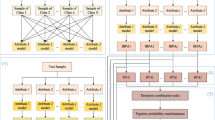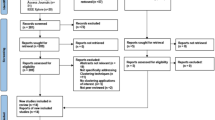Abstract
Estimating reliable class-conditional probability is the prerequisite to implement Bayesian classifiers, and how to estimate the probability density functions (PDFs) is also a fundamental problem for other probabilistic induction algorithms. The finite mixture model (FMM) is able to represent arbitrary complex PDFs by using a mixture of mutimodal distributions, but it assumes that the component mixtures follows a given distribution, which may not be satisfied for real world data. This paper presents a non-parametric kernel mixture model (KMM) based probability density estimation approach, in which the data sample of a class is assumed to be drawn by several unknown independent hidden subclasses. Unlike traditional FMM schemes, we simply use the k-means clustering algorithm to partition the data sample into several independent components, and the regional density diversities of components are combined using the Bayes theorem. On the basis of the proposed kernel mixture model, we present a three-step Bayesian classifier, which includes partitioning, structure learning, and PDF estimation. Experimental results show that KMM is able to improve the quality of estimated PDFs of conventional kernel density estimation (KDE) method, and also show that KMM-based Bayesian classifiers outperforms existing Gaussian, GMM, and KDE-based Bayesian classifiers.











Similar content being viewed by others
References
Babich GA, Camps OI (1996) Weighted parzen windows for pattern classification. IEEE Trans Pattern Anal Mach Intell 18(5):567–570
Bielza C (2014) Discrete bayesian network classifiers: a survey. ACM Comput Surv 47(1):1–43
Bouckaert RR (2004) Naive bayes classifiers that perform well with continuous variables. In: AI 2004: advances in artificial intelligence, Springer, Berlin, pp 1089–1094
Castillo E, Gutierrez JM, Hadi AS (2012) Expert systems and probabilistic network models. Springer, Berlin
Chickering DM (2010) Learning bayesian networks is np-complete. Lect. Notes Stat. 112(2):121–130
Chow CK, Liu CN, Liu c (1968) Approximating discrete probability distributions with dependence trees. IEEE Trans. Inf. Theory 14(3):462–467 IEEE Transactions on Information Theory 14(3), 462–467
Dehnad K (1986) Density estimation for statistics and data analysis. Chapman and Hall, Boca Raton
Domingos P, Pazzani M (1997) On the optimality of the simple bayesian classifier under zero-one loss. Mach Learn 29(2–3):103–130
Duda RO, Hart PE, Stork DG (2012) Pattern classification. Wiley, New York
Escobar MD, West M (1995) Bayesian density estimation and inference using mixtures. J Am Stat Assoc 90(430):577–588
Figueiredo MAT, Jain AK (2002) Unsupervised learning of finite mixture models. IEEE Trans Pattern Anal Mach Intell 24(3):381–396
Friedman N, Dan G, Goldszmidt M (1997) Bayesian network classifiers. Mach Learn 29(2–3):131–163
Girolami M, He C (2003) Probability density estimation from optimally condensed data samples. IEEE Trans Pattern Anal Mach Intell 25(10):1253–1264
Hand DJ, Till RJ (2001) A simple generalisation of the area under the roc curve for multiple class classification problems. Mach Learn 45(2):171–186
Hand DJ, Yu K (2001) Idiot’s bayesłnot so stupid after all? Int Stat Rev 69(3):385–398
Heckerman D, Dan G, Chickering DM (1995) Learning bayesian networks: the combination of knowledge and statistical data. Mach Learn 20(3):197–243
Heidenreich NB, Schindler A, Sperlich S (2010) Bandwidth selection methods for kernel density estimation—a review of performance. Social Science Electronic Publishing, Rochester
Holmström L (2000) The accuracy and the computational complexity of a multivariate binned kernel density estimator. J Multivar Anal 72(2):264–309
Holmström L, Hämäläinen A (1993) The self-organizing reduced kernel density estimator. In: IEEE international conference on neural networks, IEEE, pp 417–421
Jeon B, Landgrebe DA (1994) Fast parzen density estimation using clustering-based branch and bound. IEEE Trans Pattern Anal Mach Intell 16(9):950–954
Jeon J, Taylor JW (2012) Using conditional kernel density estimation for wind power density forecasting. J Am Stat Assoc 107(497):66–79
Jiang L, Cai Z, Wang D, Zhang H (2012) Improving tree augmented naive bayes for class probability estimation. Knowl-Based Syst 26:239–245
John GH, Langley P (2013) Estimating continuous distributions in bayesian classifiers. In: Proceedings of the eleventh conference on Uncertainty in artificial intelligence, pp 338–345
Kayabol K, Zerubia J (2013) Unsupervised amplitude and texture classification of sar images with multinomial latent model. IEEE Trans Image Process 22(2):561–572
Leray P, Francois O (2004) BNT structure learning package: documentation and experiments. Technical Report FRE CNRS 2645, Laboratoire PSI, Universite et INSA de Rouen
Pérez A, Larrañaga P, Inza I (2009) Bayesian classifiers based on kernel density estimation: flexible classifiers. Int J Approx Reason 50(2):341–362
Raykar VC, Duraiswami R (2006) Fast optimal bandwidth selection for kernel density estimation. In: SIAM international conference on data mining, April 20–22, Bethesda, MD, USA
Reynolds DA, Rose RC (1995) Robust text-independent speaker identification using gaussian mixture speaker models. IEEE Trans Speech Audio Process 3(1):72–83
Rish I (2001) An empirical study of the naive bayes classifier. J Univ Comput Sci 1(2):127
Schwander O, Nielsen F (2012) Model centroids for the simplification of kernel density estimators. In: IEEE international conference on acoustics, speech and signal processing, pp 737–740
Schwander O, Nielsen F (2013) Learning mixtures by simplifying kernel density estimators. Matrix Information Geometry. Springer, Berlin, pp 403–426
Scott DW (2015) Multivariate density estimation: theory, practice, and visualization. Wiley, New York
Scott DW, Sheather SJ (1985) Kernel density estimation with binned data. Commun Stat Theory Methods 14(6):1353–1359
Shen W, Tokdar ST, Ghosal S (2013) Adaptive bayesian multivariate density estimation with dirichlet mixtures. Biometrika 100(3):623–640
Simonoff JS (1997) Smoothing methods in statistics. Technometrics 92(3):338–339
Sucar LE (2015) Bayesian classifiers. Springer, London
Topchy AP, Jain AK, Punch WF (2004) A mixture model for clustering ensembles. In: SDM, SIAM, pp 379–390
Wang F, Zhang C, Lu N (2005) Boosting GMM and its two applications. In: International workshop on multiple classifier systems, vol 3541. Springer, Berlin, Heidelberg, pp 12–21
Wang S, Wang J, Chung FL (2013) Kernel density estimation, kernel methods, and fast learning in large data sets. IEEE Trans Cybern 44(1):1–20
Xiong F, Liu Y, Cheng J (2017a) Modeling and predicting opinion formation with trust propagation in online social networks. Commun Nonlinear Sci Numer Simul 44:513–524
Xiong F, Liu Y, Wang L, Wang X (2017b) Analysis and application of opinion model with multiple topic interactions. Chaos 27(8):083,113
Xu X, Yan Z, Xu S (2015) Estimating wind speed probability distribution by diffusion-based kernel density method. Electr Power Syst Res 121:28–37
Yang Y, Webb GI (2009) Discretization for naive-bayes learning: managing discretization bias and variance. Mach Learn 74(1):39–74
Yin H, Allinson NM (2001) Self-organizing mixture networks for probability density estimation. IEEE Trans Neural Netw 12(2):405–411
Acknowledgements
This work is supported by National Natural Science Foundation of China under Grant 61772064, and Academic Discipline, Post-Graduate Education Project of the Beijing Municipal Commission of Education, and Fundamental Research Funds for the Central Universities under Grant 2017YJS026. The authors also thanks the anonymous reviewers’ valuable comments and suggestions for improving the quality of this paper.
Author information
Authors and Affiliations
Corresponding author
Additional information
Responsible editor: Fei Wang.
Rights and permissions
About this article
Cite this article
Zhang, W., Zhang, Z., Chao, HC. et al. Kernel mixture model for probability density estimation in Bayesian classifiers. Data Min Knowl Disc 32, 675–707 (2018). https://doi.org/10.1007/s10618-018-0550-5
Received:
Accepted:
Published:
Issue Date:
DOI: https://doi.org/10.1007/s10618-018-0550-5




